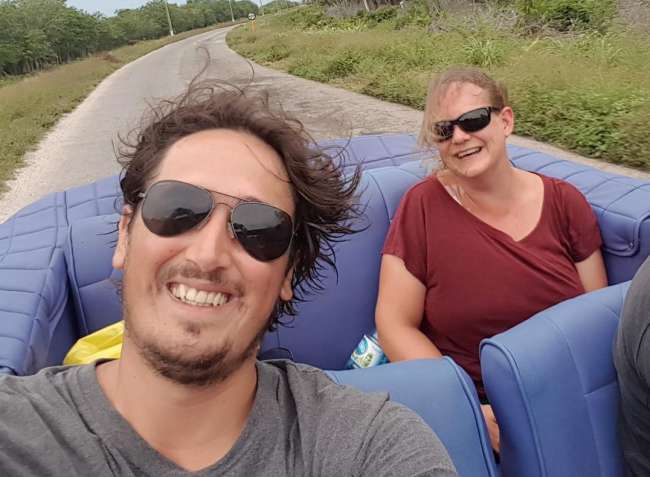Honduras: Tela
Byatangajwe: 08.05.2018
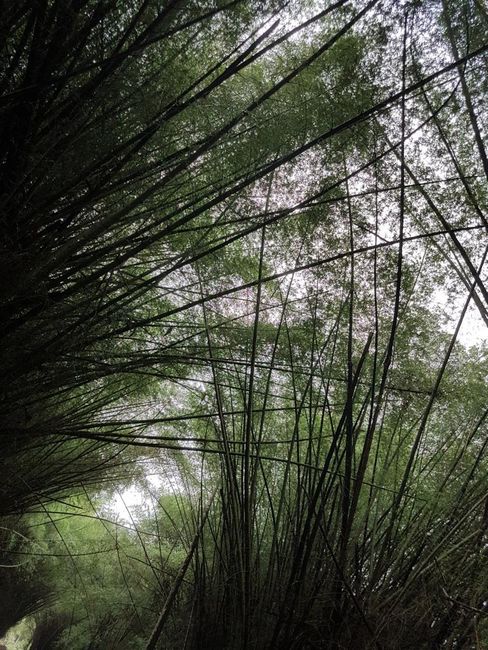
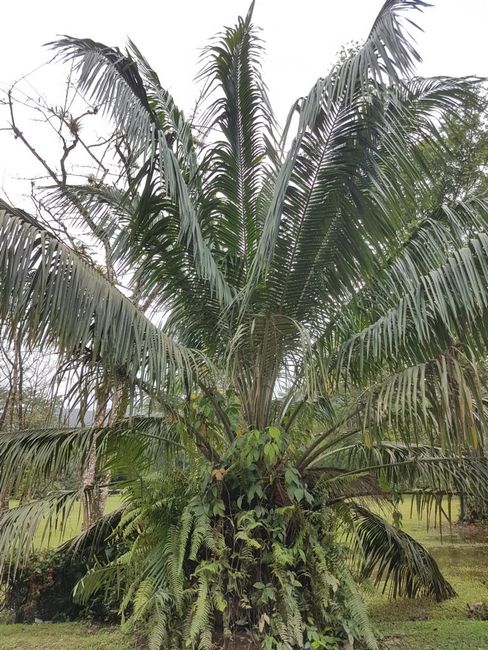
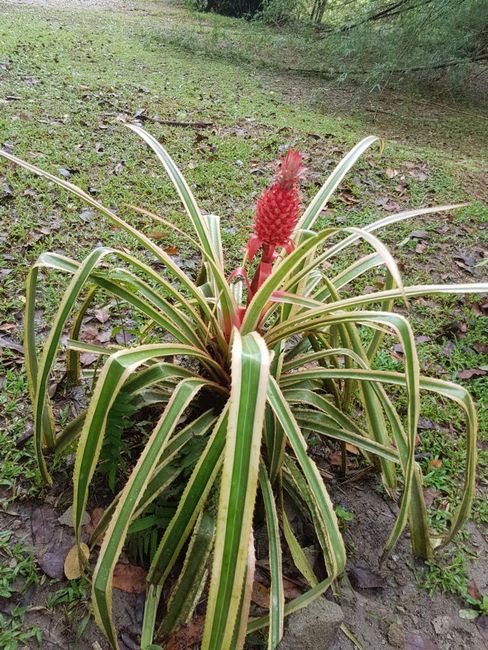
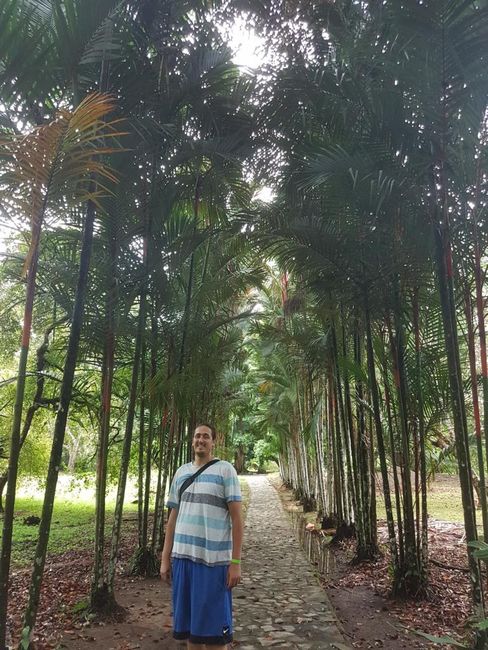
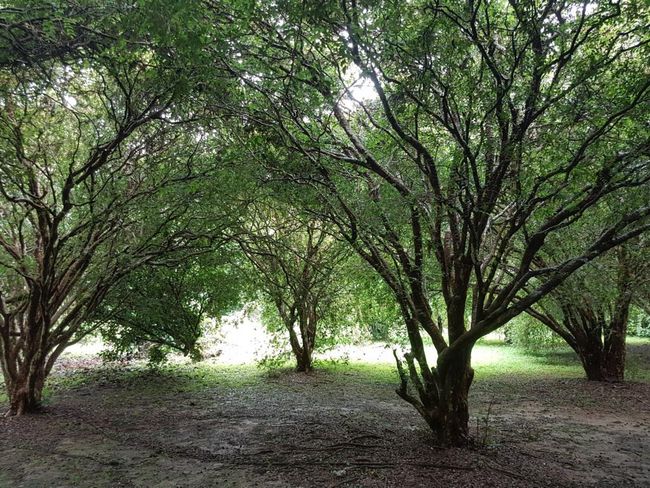
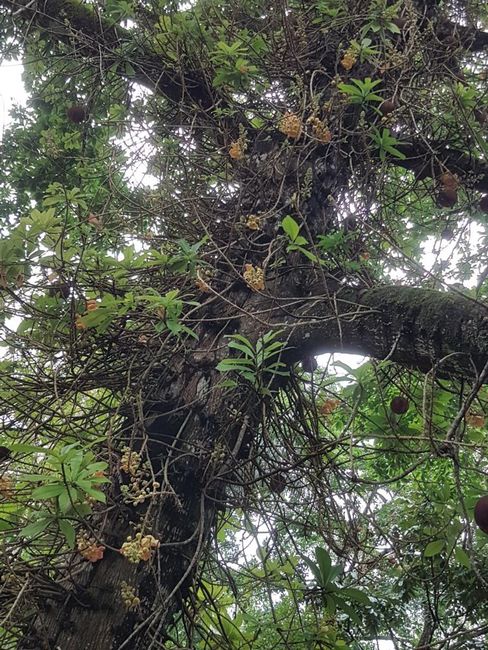
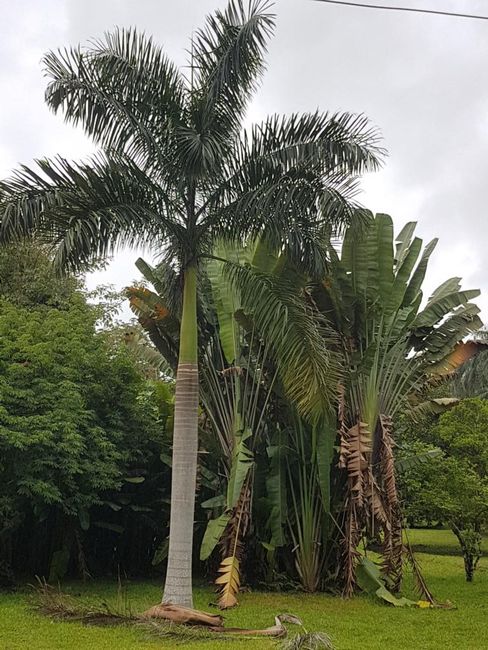
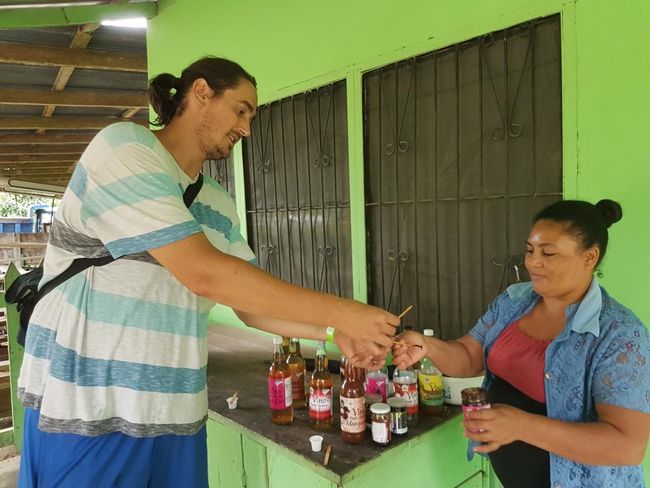
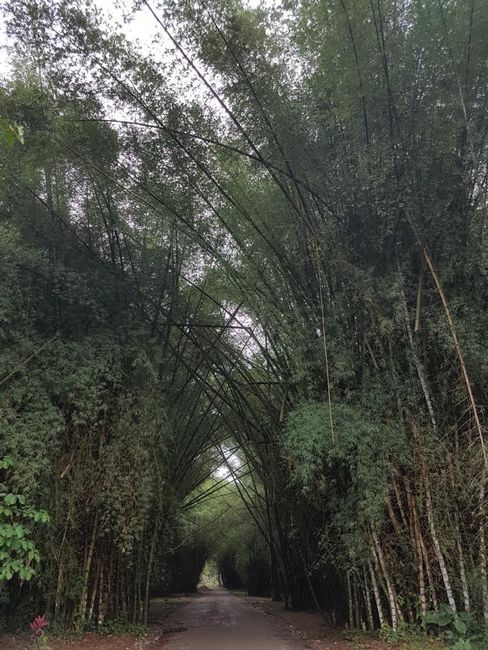
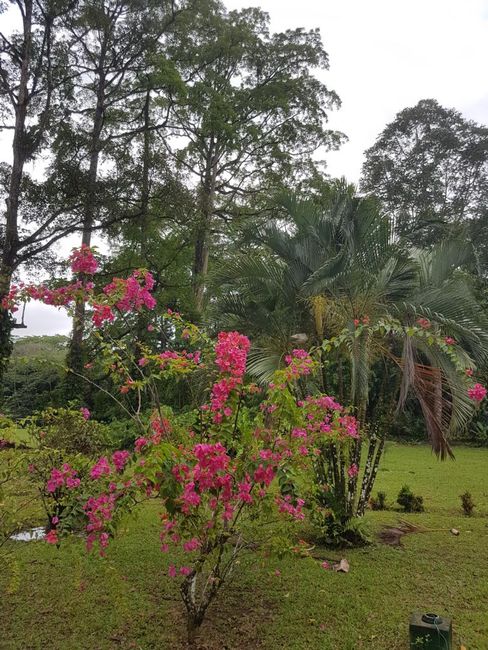
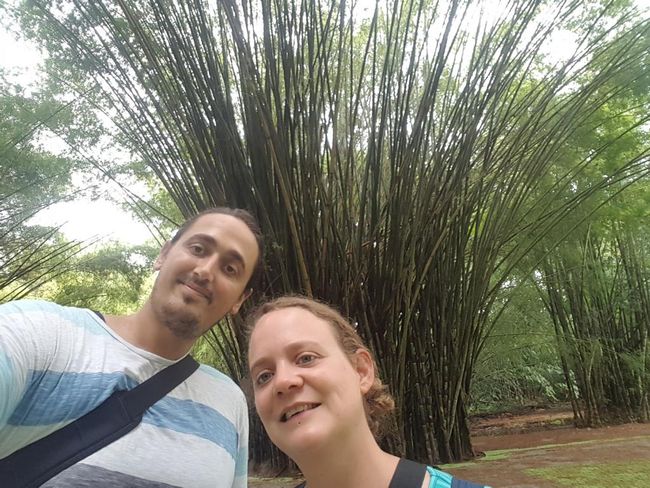
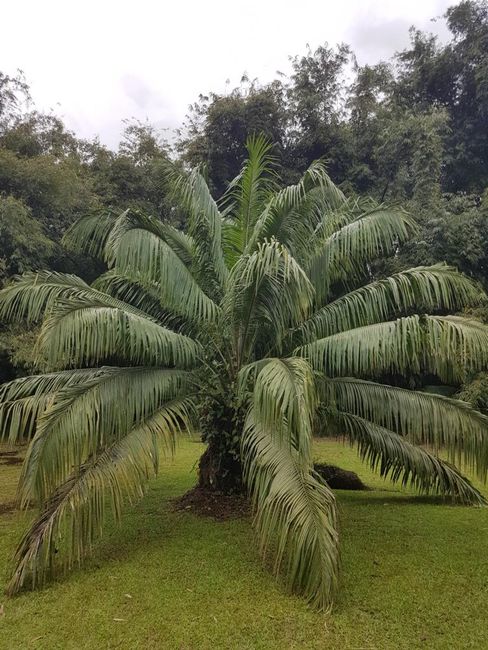
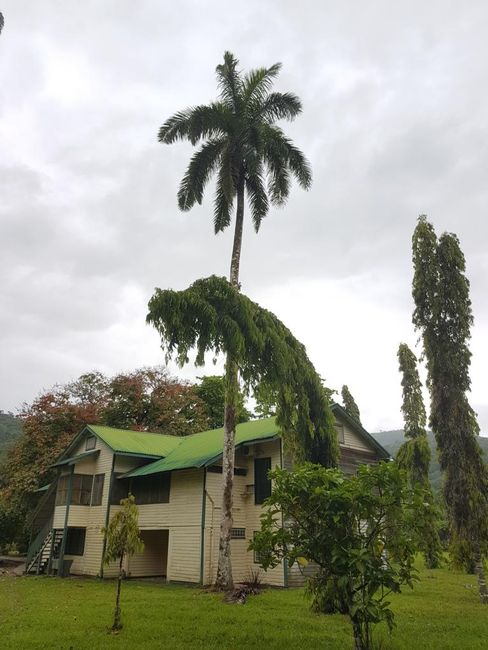
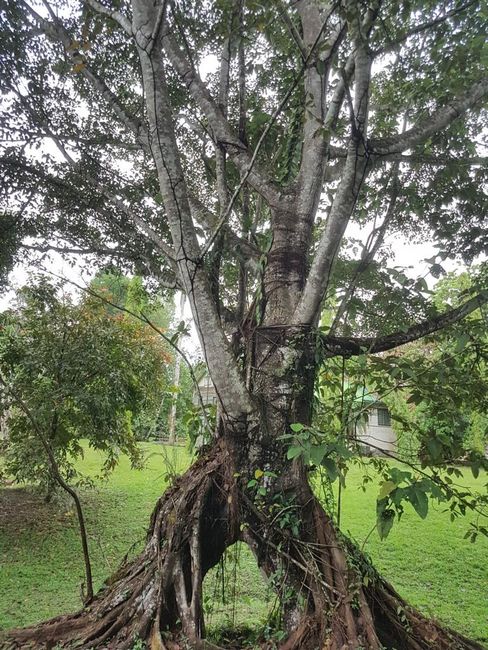
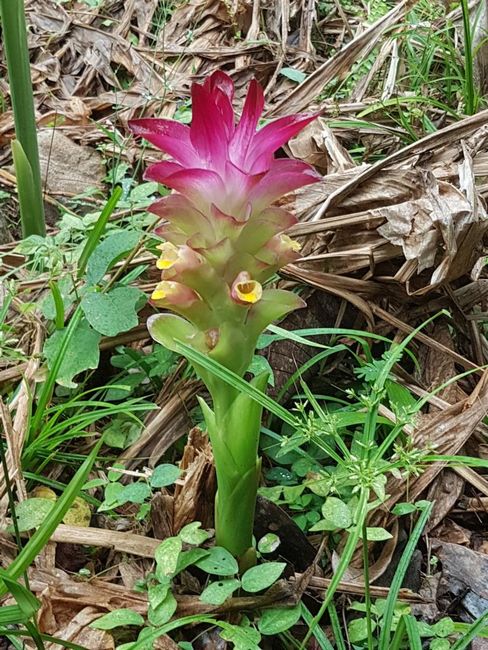
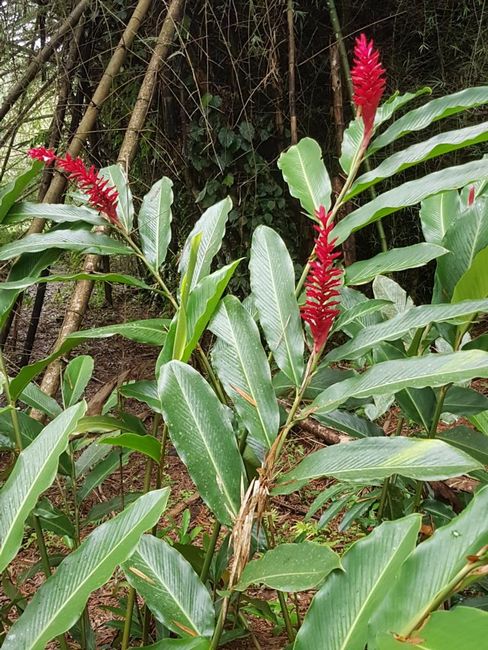
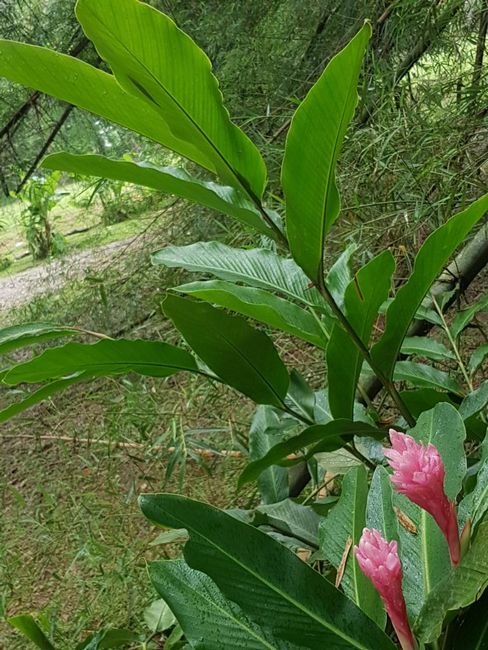
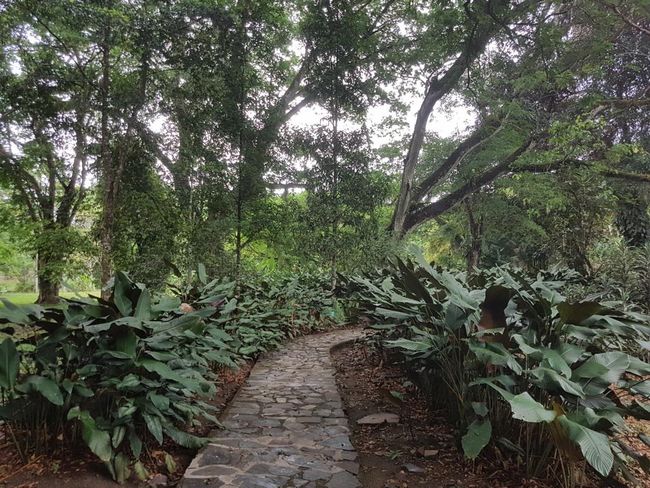
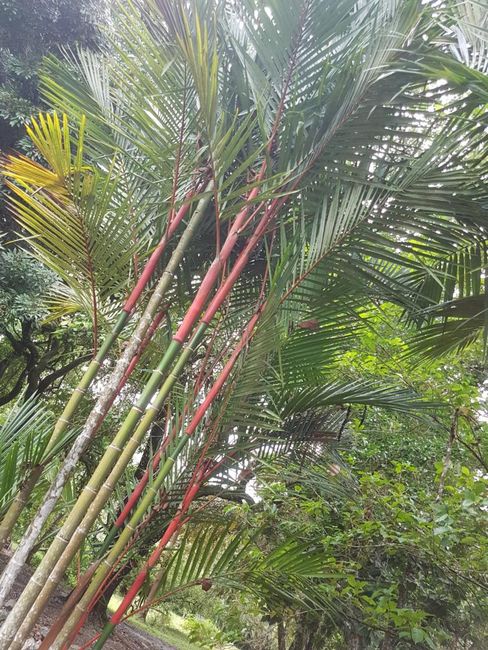
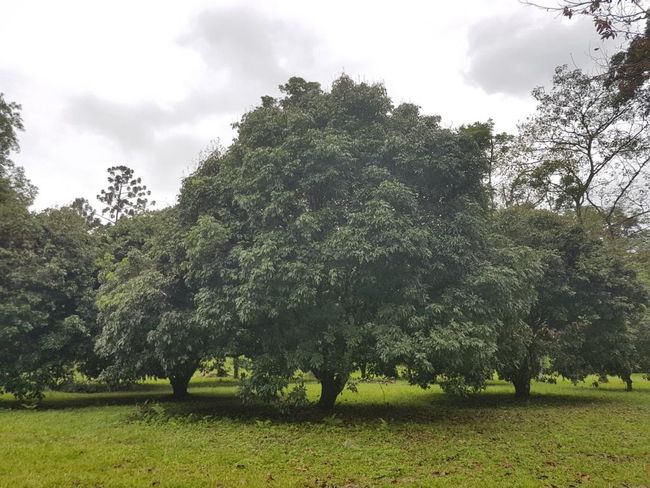
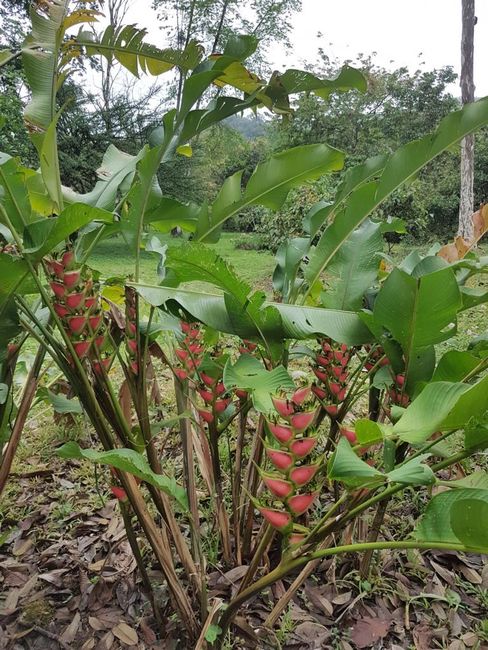
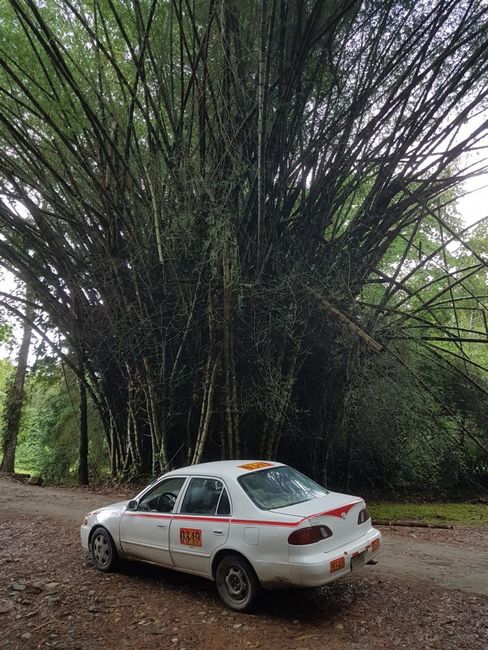
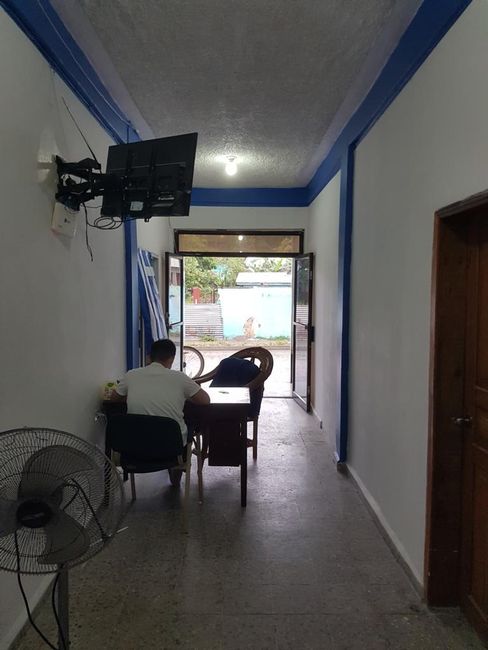
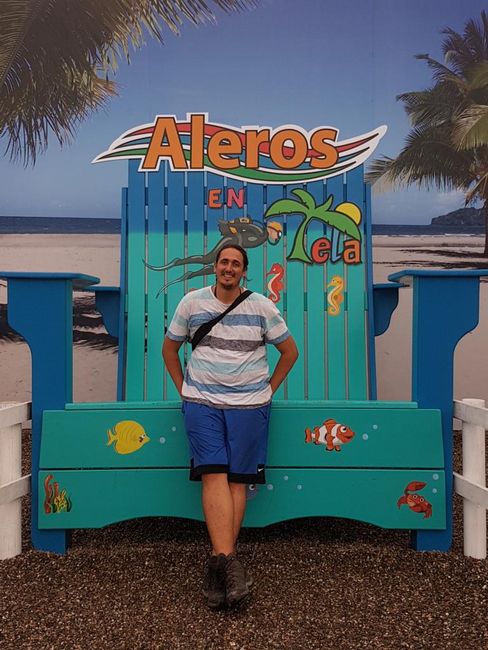
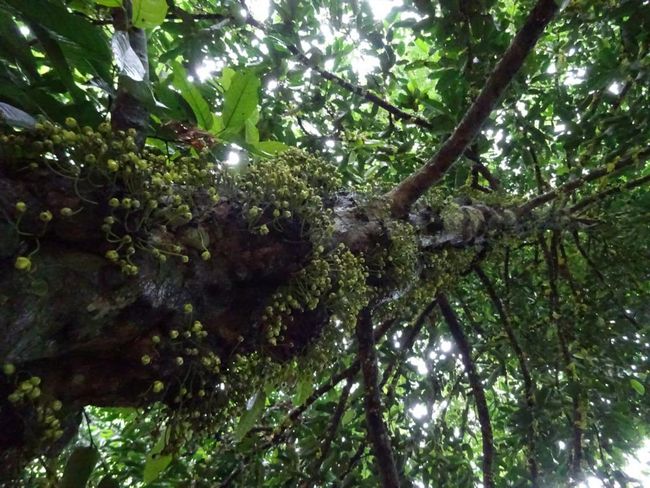
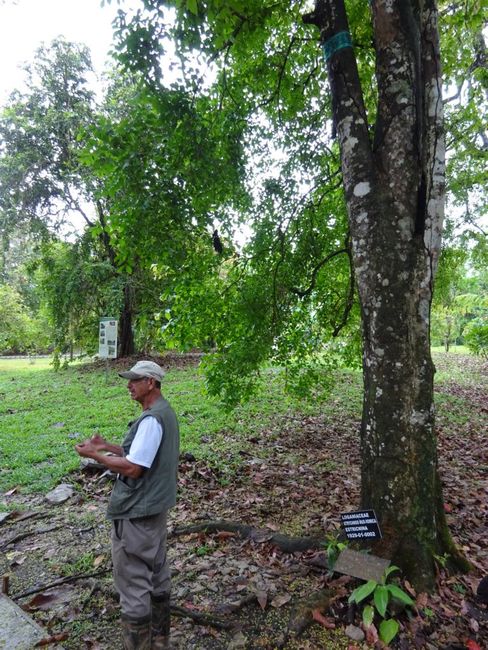
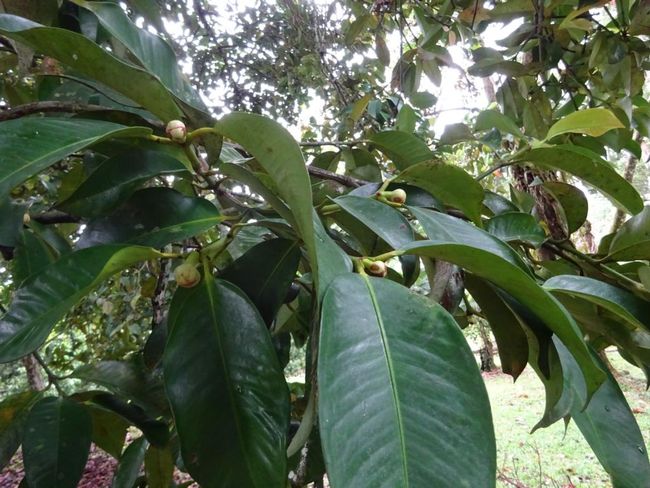
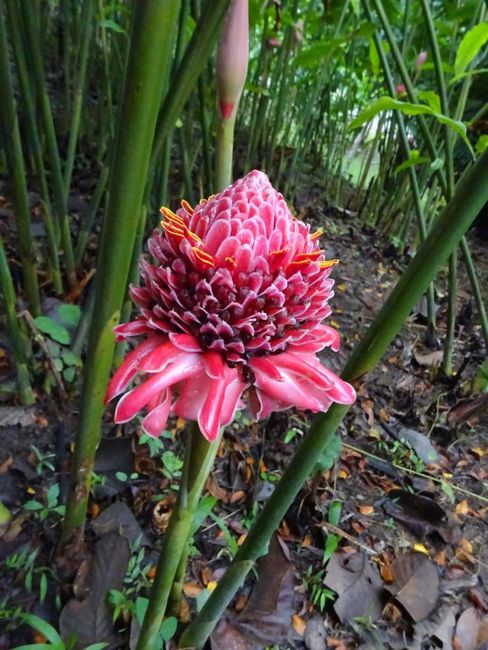
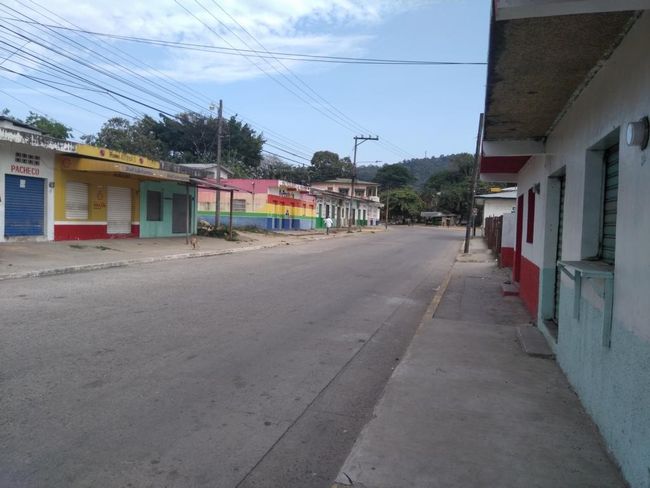
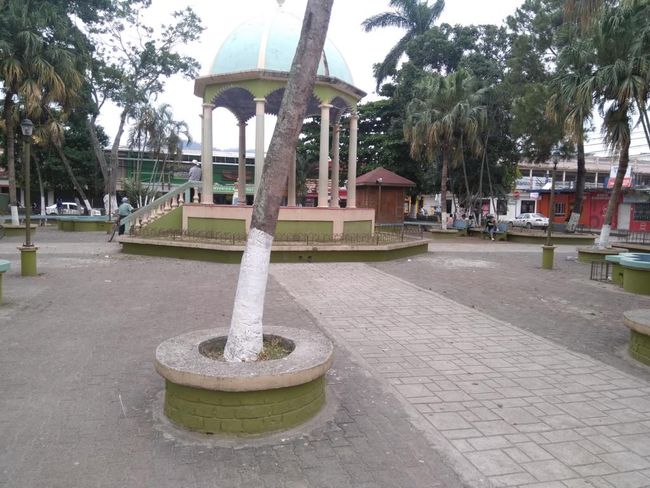
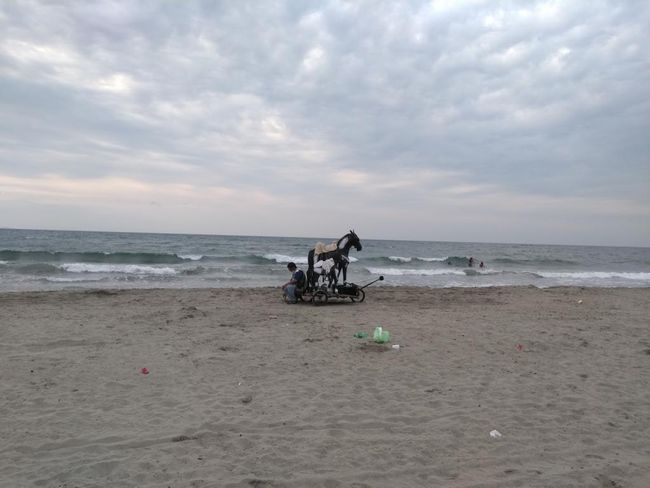
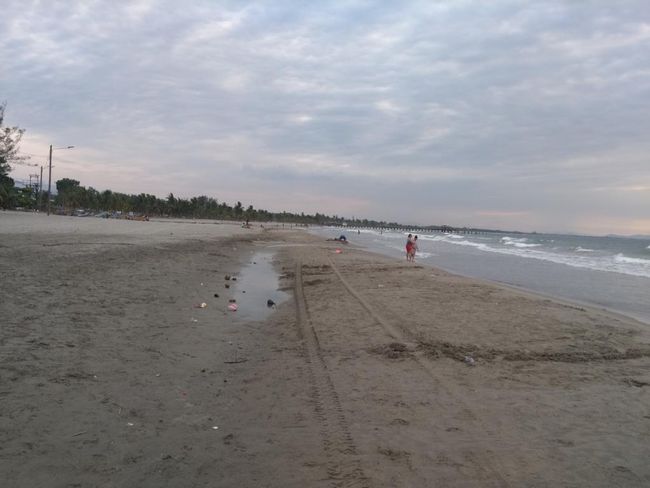
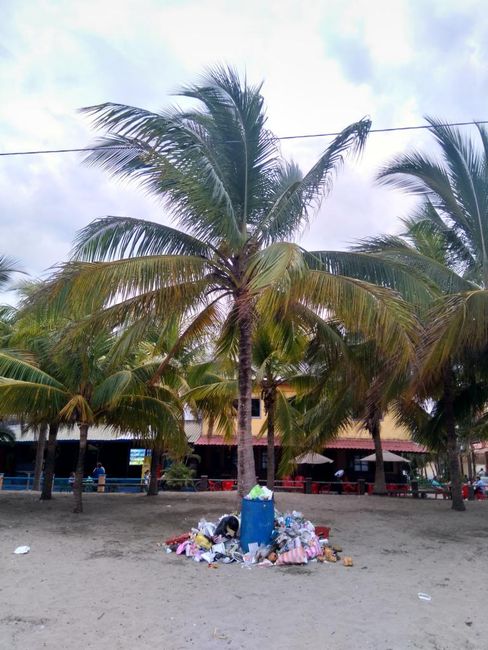
Iyandikishe mu kinyamakuru
We actually only went to Tela to visit the Jardin Botanico Lancetilla, the second largest botanical garden in the world and the largest in the Americas (the largest one is in Indonesia). At that time, we didn't know that this would be our most nerve-wracking stop so far. But more on that later.
We took the Hedman Alas bus to Tela again and were very surprised when we were dropped off at a gas station a few kilometers outside of Tela instead of at a bus terminal or a Hedman Alas office. We had also booked our onward journey from Tela to La Ceiba the next day in San Pedro Sula, and the driver reassured us that we would be picked up at the same location tomorrow. Somehow, it all seemed untrustworthy, but well, we didn't really have a choice. From the gas station, we took a taxi to our accommodation, a simple hotel that had just opened and where construction work was still in progress. The "reception" consisted of a table in the hallway.
In the travel guide, Tela is described as a very dangerous city where you shouldn't even be outside the immediate city center during the day. As usual, we inquired about the security situation at the accommodation, and we were assured, as always, that it was absolutely tranquil, meaning safe here. That's always the case. You are always advised to ask locally about the state of security. Typically, however, locals have a different standard for things like security than we do; of course, they always compare their home to even more dangerous places. As Swiss people, we generally have a distorted perception of security compared to the rest of the world, as we hardly have to fear being randomly robbed or shot in the middle of the street. From the locals' point of view, Tela is safe because it is much less dangerous than, for example, San Pedro Sula. From our point of view, Tela is unsafe because it is much more dangerous than, for example, Zurich. Therefore, the locals' assessments should always be taken with caution; they quickly say that it is absolutely no problem to walk around the streets until 10 p.m., although we still wouldn't do that. However, as we would soon find out about Tela, it was much safer for our belongings than expected.
In the afternoon after our arrival, we explored the city center of Tela, where there really isn't much to see. We also spent some time at the beach, which is right in the city and mainly visited by locals. Nothing special.
The next day, we set off as planned to the botanical garden. Normally, we are not plant enthusiasts, but this was a welcome change in our program as well. The botanical garden is named after the Lancetilla River.
The garden was founded in 1925 by the United Fruit Company as a research and experimental station for tropical crops. Vegetative material was imported from 4 continents, genetically improved, and then spread and grown in Latin America. This mainly affected the African oil palm and Asian fruits such as lychee and rambutan, which found their way to Latin America through Lancetilla. After the research station lost importance for the United Fruit Company, illegal laborers occupied the area, cleared plantations, and destroyed a huge treasure of biodiversity and natural gene pool, as well as many results of scientific work. In 1978, the park became the property of the Honduran state, which led to an improvement in the situation.
At the visitor center, we hired a guide who would accompany us on the tour. And since we are not very knowledgeable about plants, this turned out to be a very good idea, as we probably wouldn't have noticed many plants and fruits without his guidance. He also showed us some very poisonous plants, including the tree from which strychnine is made.
Nowadays, the garden serves three important purposes: in addition to preserving the plants, it serves as a water reservoir for the region and as a habitat for many animals. The park consists of three sectors: the bioresearch area preserves tropical plants of the primary and secondary forests, the arboretum serves as a seed bank, and the experimental plantations cultivate crops, woods, and fruits. During the tour, we could also taste various fruit liqueurs and jams (and of course buy them) made by a women's cooperative from the fruits of the park.
After the tour, we had some time to stroll around the park on our own. However, the tranquility soon came to an end as we were suddenly chased through the park by a taxi. We had arranged with our taxi driver who had brought us here that he would pick us up after a few hours. He insisted that we pay for the pick-up in advance, which we naturally refused. In the end, he would just take the money and leave us standing there. We assured him that we would wait for him and would not take another taxi back (besides, there were no other taxis). Apparently, he didn't trust us, returned an hour early, and then searched the park for us. When we said that we actually wanted to walk through an area for another hour that we hadn't seen yet, he was on the verge of leaving the car in the middle of the bamboo tunnel and following us on foot. Slowly getting annoyed, we insisted that he should just wait there, which he did. And exactly there. So that we had to pass him again. Oh my God, that's all I can say.
After returning from the botanical garden to the hotel, we packed our stuff and headed back to the gas station where the bus had dropped us off the day before. We were quite nervous and stressed as it was getting late and already dark, and we were afraid that the pick-up wouldn't work and the bus wouldn't come or that we would have to wait for the delayed bus in the darkness for a long time. We got off, negotiated with the taxi driver who suddenly wanted more money than agreed, and I went to the toilet again and asked at the gas station if the bus really stops here daily. Unfortunately, the gas station staff knew nothing about a Hedman Alas bus stopping here, which logically increased my nervousness. And then... we suddenly realized that one of our backpacks was missing. Not just any backpack, but the one that contained all our electronic stuff (notebook, tablet, camera, lenses, e-reader), binoculars, our documents (insurance cards, vaccination records, etc.), my two glasses, medication, and therefore all our valuables (except for passports, credit cards, and cash, which we luckily always keep separate. And we also have online copies of all important documents.). So exactly the backpack that we usually guard like our eye. Could this really be true? A moment of carelessness and someone had stolen the backpack? There was no other possibility. Due to nervousness and back and forth with the taxi driver, we hadn't noticed anything, unfortunately, we hadn't even paid attention to the people who had passed by us. The only thing we remembered was that there was already another taxi standing there where our taxi stopped to drop us off. However, the fact was: the backpack was gone. And of course, just at that moment, the bus arrived! This couldn't all be true!! We were totally shocked and had no idea what to do; we were still busy searching every corner around the damn gas station for our backpack. We told the bus driver that we were still missing our backpack, but he said he didn't have time for it and drove on. After our consciousness finally processed that the backpack was no longer on the gas station premises and that our bus had left without us, we grabbed a taxi and drove back to the hotel, where we explained the situation to Tiffany, the young lady who works there, and booked a room again.
Barely 30 minutes later, Tiffany's family car arrived; they own the hotel. They loaded us into the car and drove us to the police station. The police immediately followed us to the gas station to view the surveillance camera images. And so we arrived at the gas station, escorted by a police pickup truck and 5 heavily armed officers with heavy artillery. You could say that we stood out a bit when we entered the gas station. It took a while to check the cameras because the gas station manager was not present, and therefore, no one had access to the surveillance system. When his deputy finally turned up and viewed the videos, we found out that you couldn't see anything on the surveillance camera. The place where we got off was exactly in the blind spot. The only thing you could see was our taxi arriving, the other taxi leaving shortly afterwards, and then our taxi leaving again. The idea was to locate the other taxi driver to ask him if he had seen anything, but even the taxi numbers, which are printed prominently on the side doors of the cars, were not really readable on the video recordings. Maybe four hundred-something? Could the second digit be a two? One wonders then why the hell this surveillance camera is even good for anything. After this realization, the police officers soon left because they had just received an emergency call. They said we should come by the station later to file a report.
However, the hotel family said they wouldn't give up so easily and had the gas station employee send them the recordings on their phone. They told us not to worry, they would help us with all the means at their disposal, they said. On the way back, they woke up an acquaintance (it was already very late at night), who then came out only in boxer shorts to look at the pictures. It's a Corolla, he said, built in 2006 or 2007, definitely not 2008. Well, every other taxi here is a Corolla. The taxi number could be one hundred-something? Again, oh great, apparently, everyone sees something different. In any case, the family said that it was too late to do anything more tonight, but they would try to improve the quality of the images on the computer the next morning, and we drove back to the hotel.
Unfortunately, Jörg and I couldn't sleep, but luckily we had a bottle of rum with us, so we sat in front of the hotel half the night, got drunk, watched the rain (it was pouring down), and began to accept that we would never see this backpack again.
Early the next morning, there was a knock on our door. It was the wife of the hotel family, who said that the police would come here soon to talk to us, in about an hour, and we should definitely wait here in the hotel. They themselves would try to find the taxi in the meantime. They had figured out the license plate number, it was 435! How the hell do you know that all of a sudden? Still very hungover, we fell back into bed and waited for the police as told. And we waited... and waited... we stayed in the hotel all day as instructed so as not to miss the police; we were used to delays here. But they didn't come. The hotel family suddenly couldn't be found anywhere either. It was clear to us that it was hopeless; our belongings were probably already on some black market in San Pedro Sula. So we decided to go to the police station in the morning to file the report and then continue to La Ceiba.
Said and done. The next morning, we set off early to the police station where we had already been with the family. Arriving there, suddenly no one knew about our case anymore, and they said that we were in the wrong place anyway. Reports had to be filed at another police station, which was quite far away. But the police are, after all, your friend and helper, and so a patrol was immediately found to take us to the other station. To get into the police car, we even had to climb over a huge machine gun, which was simply leaning against the back seat. The driver and the front passenger didn't make any effort to remove the gun. At some point, the owner noticed the absence of his weapon, and Jörg handed him the huge gun through the car window.
When we arrived at the other police station, we filed the report. Our lost documents also included the two entry confirmations that had been handed to us at the border when we entered Honduras. Since the policewoman didn't know what the consequences of losing these papers were, she promptly arranged for another police car to take us directly to the immigration office. Although the police showed no signs of taking any further action in our case other than filing the report, at least they were very helpful and drove us around with all the stuff. The policewoman who took the report even gave us her private cell phone number in case of any problems or uncertainties; she said we could call her anytime. Anyway, the landline phone at the police station wouldn't work (aha, very reassuring). She had already registered us at the immigration office, so we were already expected there. After a conversation with the officer there, it turned out fortunately that this missing piece of paper was not of significance, and that we had no problems to fear when leaving Honduras. At least something. By the way, during this conversation, we also found out that we would have to extend our visa in Nicaragua, but more on that later.
After that was taken care of, we returned to the hotel to pick up our stuff. There was no one there except the cleaning lady, so we asked her to call Tiffany since we still had to settle the bill. She asked if it was time for us to leave now that our backpack was back... What? Backpack? Back again? Did we mishear something? Did we miss something? - Yes, she said, the backpack was back this morning, didn't we see it? - Ummm... no?!
She immediately called Tiffany, who arrived 5 minutes later together with her mother... and they had our backpack... we couldn't believe our eyes! They actually had our backpack! And everything was in it, everything intact! It was not just a little, no, it was absolutely unbelievable! We really hadn't expected that anymore.
We don't know how they did it, and they didn't tell us in detail. They just said that the whole family had been driving around with our stuff all day yesterday and scouring the whole city to find the backpack. They know each other here, in the small town of Tela. We were too shocked (this time, of course, in a positive sense) to question the whole thing further. We thanked them a thousand times, hugged each other warmly, paid the bill, and even gave the family a generous tip, despite their protests, to at least cover the gasoline costs for the driving around and a good dinner for the whole family, which was nothing compared to the value of my glasses alone. In our euphoria, we also immediately hired the husband of the cleaning lady (who turned out to be the family's cousin), who is a taxi driver and had just had lunch at the hotel with his wife, to drive us to La Ceiba afterwards. We just wanted to get out of here quickly now...
And so it happened that in this dangerous city our lost backpack reappeared as if by magic. Maybe it was more due to some mafia methods. We don't know for sure. Probably we don't even want to know for sure.
What does this story teach us? Take better care of your stuff! Yes, of course, that too. 😊
But it has also taught us a lot about the culture of Honduras. Unfortunately, we have experienced that the official authorities don't really work as they should here. In our case, the police didn't really do anything; they didn't even show up as announced. It's not that the police were indifferent or didn't want to help us. On the contrary. Everyone did what they could within their means to help us. They immediately sent an armed patrol with us to view the surveillance tapes, even though they quickly resigned due to the non-existent outcome. And which Swiss police officer would give you his private cell phone number so that you could call him anytime for any reason? Nor would officers drive you around town in all directions and even make appointments for you at the immigration office. On the other hand, at least the phones at the police station in Switzerland would work (one can't help but wonder what the purpose of the police emergency number is without a functioning telephone). Everyone is trying to help, but somehow the whole apparatus as such doesn't really work. Fairly, however, it must also be said that the loss of our backpack is certainly not the most urgent of problems in a country with such high rates of violent crime. Fair enough.
We have experienced that in Honduras, nothing works without vigilante justice. People here don't rely on authorities; they help themselves. Vitamin B (connections) is the magic word; you play your connections, wake up friends and acquaintances in the middle of the night to identify cars. And the friends also come out in the middle of the night, in boxer shorts, to help.
We have experienced that the phrase "Don't worry, we'll help you as best as we can" really means that they will help you with everything they can. They don't give up halfway.
We have experienced that people take care of other people. That a whole family does everything in their power to help strangers, even though they don't have to.
Here, we have also experienced that in one of the most dangerous countries in the world, most people are kind and decent, friendly and helpful.
Although we had planned to spend only a short 24 hours in Tela, we ended up staying there for 3 days.
Although we only came here to visit the botanical garden, it turned out to be one of the most valuable and memorable experiences of our journey.
And although this experience cost us a lot of energy and nerves, there was fortunately a happy ending. 😊
Iyandikishe mu kinyamakuru
Igisubizo
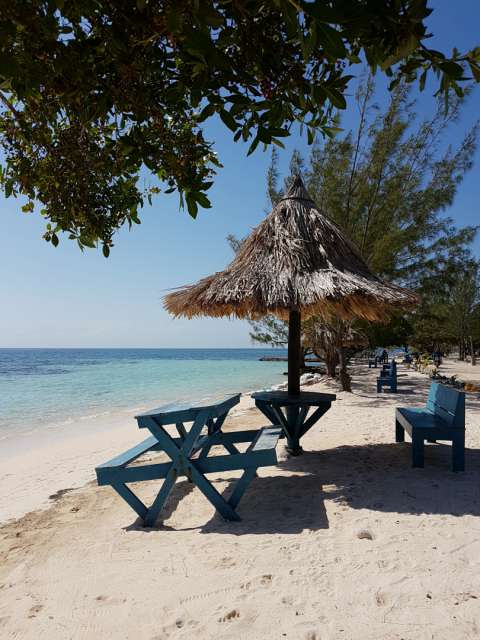
Raporo yingendo Honduras

